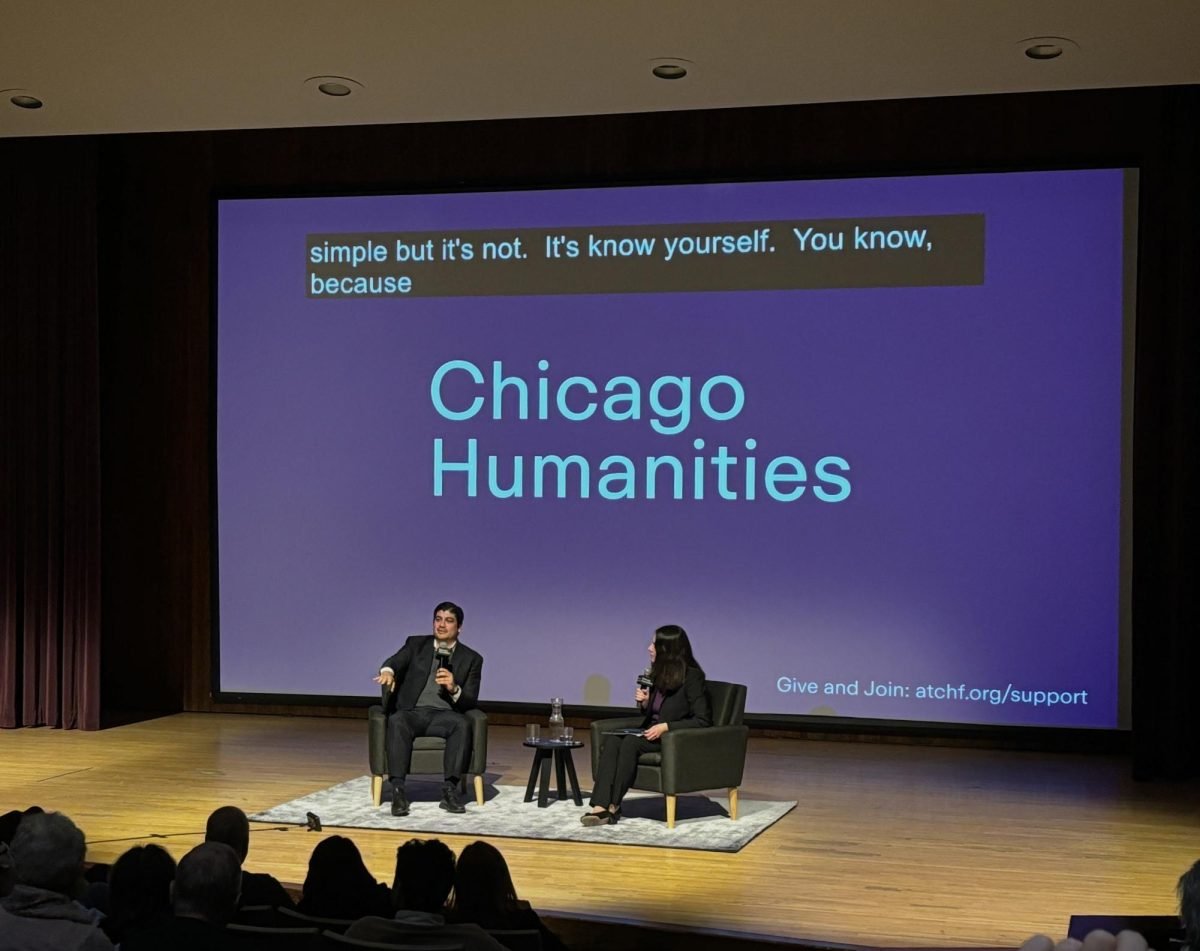Former President of Costa Rica Carlos Alvarado Quesada emphasized the impact small states can have in making exemplary change in climate policy Saturday morning in his talk for the Chicago Humanities Festival’s annual “Northwestern Day.”
In partnership with the Buffett Institute for Global Affairs, the conversation with Alvarado centered on small state solutions to climate change. Community members and NU students attended as Alvarado detailed his experiences navigating leadership.
Alvarado’s talk was one of nine campus events scheduled for the festival. The festival’s Executive Director Phillip Bahar, who opened the conversation, said he was excited to welcome Alvarado.
Alvarado served as the 48th president of Costa Rica from 2018 to 2022 and is currently a professor of the practice of diplomacy in the graduate school of global affairs at Tufts University.
“You know in sixth grade when they play the national anthem, and you look at the flag and you say ‘I want to be president?’ I was not one of those kids. I wanted to be a goalkeeper and then a writer,” Alvarado said. “Then I started to see politics as a way of creating solutions.”
Pritzker School of Law Dean Hari Osofsky moderated the conversation.
Osofsky said she was grateful for the opportunity to talk to Alvarado, as she is also passionate about addressing injustices in energy in climate change.
“His leadership on climate change has made an extraordinary difference and provides important models for the path forward,” Osofsky said.
Alvarado recalled being initially inspired by small states leading the charge on the Paris Agreement while serving as the Costa Rican minister of social development. Alvarado said he observed smaller countries working together to tackle climate change and realized their ability to lead by “example” and “vulnerability,” which he said informed his approach when he took office in May 2018.
“We’re talking about countries that eventually might even disappear because of things like sea level rise or other phenomena pushing into that direction, and also showing that it’s possible (to make change),” Alvarado said.
Despite the progress Alvarado said he believed came from the Paris Agreement, he said he noticed one thing missing: a decarbonization plan.
Upon taking office, one of Alvarado’s first priorities was to develop such a plan. He recalled working with Christiana Figueres, the executive secretary of the United Nations Framework Convention on Climate Change, to make this happen.
Alvarado said he was initially unsure they would be able to make a meaningful impact on their own, but Figueres reassured him that they would.
“She said to me, ‘Mr. President, imagine you’re on a big highway and you have these big trucks and medium cars and small cars, but everything is a traffic jam — nobody’s moving,’” Alvarado said. “‘But Mr. President, you got a bicycle. So you ride a bicycle, and what is going to happen? You’re going to move forward very rapidly. What’s the second thing that’s going to happen? Everybody’s going to notice and know what the way is.’”
Costa Rica enacted a decarbonization plan in 2019, leading to an 85% reduction in carbon output by the time Alvarado left office, according to Osofsky.
Chicago Humanities Festival House Manager Abbey Fenbert, who attended the talk and monitored the Q&A session, said she “understands” why Costa Rica scores so high on the happiness index every year after listening to the former president speak.
“I wish that this event had an even bigger audience because I think climate change is so crucial, and to hear anyone who’s made any progress on it at a state level is really, really important,” Fenbert said. “I (was) really encouraged that we had this event and hope even more people get to hear about this.”
Email: [email protected]
Related Stories
— Chicago Humanities Festival brings speakers, thousands of attendees to NU
— Actor Bob Odenkirk discusses his new children’s book at NU for Chicago Humanities Festival






